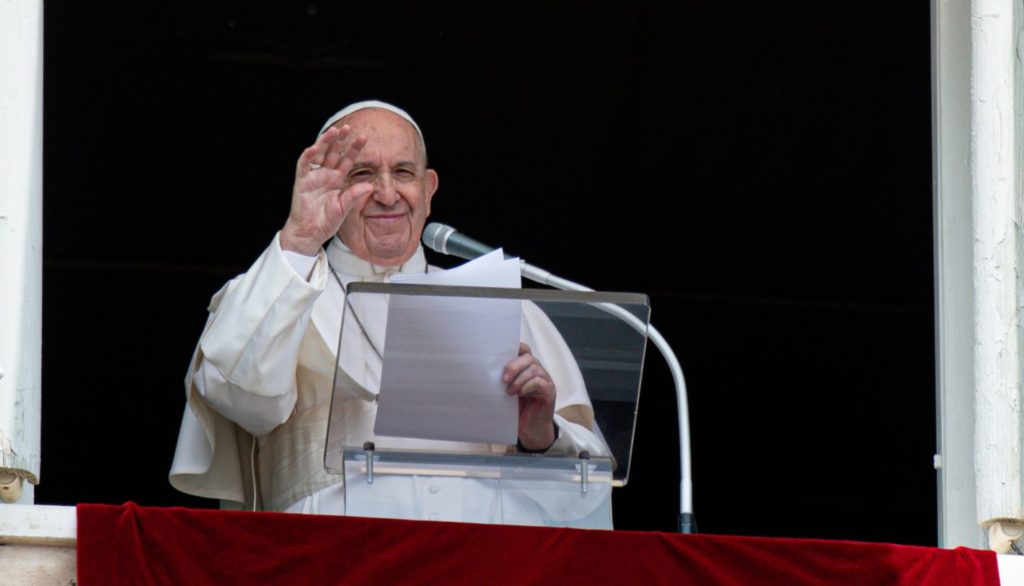









Today, Sunday, June 6, in Italy, Spain and other countries, is the Solemnity of the Body and Blood of Christ, the Solemnity of the Body and Blood of Christ. Corpus Domini. This is why Pope Francis began his address after the Angelus prayer in St. Peter's Square by turning to the Gospel for this solemnity: "The Gospel presents us with the account of the Last Supper (Mk 14:12-16, 22-26). The Lord's words and gestures touch our hearts: he takes the bread in his hands, pronounces the blessing, breaks it and gives it to the disciples, saying: "Take, this is my body" (v. 22)".
"It is in this way, in simplicity, that Jesus gives us the greatest sacrament," the Holy Father reminds us. "His is a humble gesture of self-giving, of sharing. At the culmination of his life, he does not distribute bread in abundance to feed the crowds, but breaks himself at the Passover meal with the disciples. In this way, Jesus shows us that the goal of life is self-giving, that the greatest thing is to serve. And today we find the greatness of God in a piece of bread, in a fragility that overflows with love and sharing. Fragility is precisely the word I would like to underline. Jesus becomes fragile like bread that breaks and crumbles. But that is precisely where his strength lies. In the Eucharist fragility is strengthThe power of love that makes itself small to be welcomed and not feared; the power of love that splits and divides itself to nourish and give life; the power of love that fragments itself to reunite us in unity".
The Eucharist was at the center of his words on today's feast: "And there is another strength that stands out in the fragility of the Eucharist: the strength to love those who make mistakes. It is on the night he was betrayed that Jesus gives us the Bread of Life. He gives us the greatest gift while he feels in his heart the deepest abyss: the disciple who eats with him, who dips his morsel in the same dish, is betraying him. And betrayal is the greatest pain for those who love. And what does Jesus do? He reacts to evil with a greater good. To Judas' "no" he responds with the "yes" of mercy. He does not punish the sinner, but gives his life for him. When we receive the Eucharist, Jesus does the same with us: he knows us, he knows that we are sinners and that we make many mistakes, but he does not renounce to unite his life to ours. He knows that we need it, because the Eucharist is not the reward of the saints, but the reward of the saints. the Bread of sinners. Therefore he exhorts us: 'Take and eat.
"Every time we receive the Bread of Life," says the Pope, "Jesus comes to give new meaning to our frailties. He reminds us that in his eyes we are more valuable than we think. He tells us that he is pleased if we share with him our frailties. He repeats to us that his mercy does not fear our miseries. And, above all, he heals us with love of those frailties that we cannot cure by ourselves: that of feeling resentment towards those who have hurt us; that of distancing ourselves from others and isolating ourselves within ourselves; that of crying over ourselves and complaining without finding peace. The Eucharist is an effective medicine against these closures. The Bread of Life, in fact, heals rigidities and transforms them into docility. The Eucharist heals because it unites us to Jesus: it makes us assimilate his way of living, his capacity to give himself to his brothers and sisters, to respond to evil with good. It gives us the courage to go out of ourselves and to bend with love towards the fragility of others. As God does with us. This is the logic of the Eucharist: we receive Jesus who loves us and heals our frailties in order to love others and help them in their frailties".












